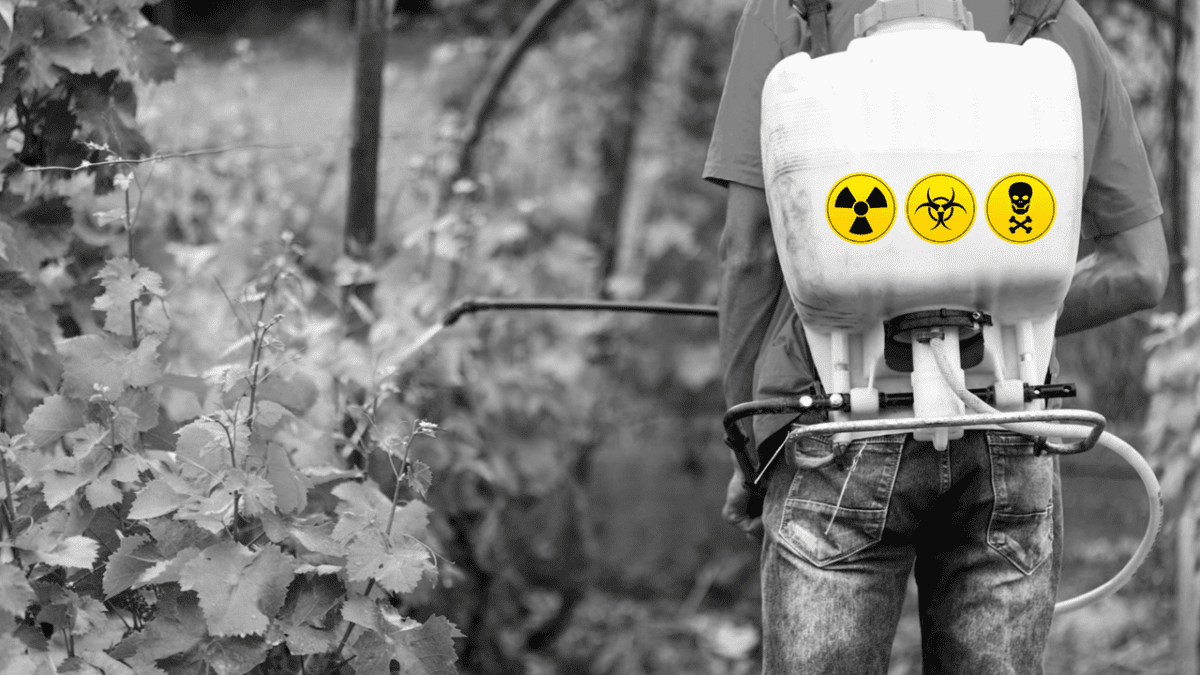Kenyan Agriculture Grapples with Toxic Pesticides — A Growing Threat to Human Health

In a concerning revelation for Kenyan agriculture, farmers, horticultural workers, and users of open-source water systems are increasingly finding themselves at risk due to the pervasive use of toxic pesticides imported from China and Europe. These two global giants are the primary exporters of farm chemicals to Kenya, where the consequences of this practice are now becoming alarmingly clear.
Recent data released by the Heinrich Boll Foundation, an organization dedicated to environmental and food security advocacy, has shed light on a deeply troubling issue: Kenyan consumers are unwittingly ingesting food tainted with residues of pesticides that were banned in Europe over a decade ago but continue to be sold to Kenyan farmers. This report, titled “Toxic Business: Highly Hazardous Pesticides (HHPs) in Kenya”, highlights that among the 310 pesticides investigated, more than half were found to contain substances like carbosulfan, known for its potential to harm critical human organs.
The World Health Organization (WHO) has identified carbosulfan exposure as a catalyst for liver and kidney failure, along with detrimental effects on protective layers in the human intestinal lining. Additionally, despite WHO and UN Food and Agricultural Organization (FAO) endorsements, glyphosate has been linked to cancer in humans, according to research by the International Agency for Research on Cancer (IARC) in 2016.
Equally concerning is the continued presence of carbofuran, labeled differently in Kenya but listed as a banned substance by the Pest Control Products Board (PCPB), both in Kenya and the US. These three substances—carbosulfan, glyphosate, and carbofuran—dominate the Kenyan pesticide market.
Today, Kenyan farmers are applying billions of liters of these toxic pesticides across their maize, wheat, coffee, potato, and tomato fields, particularly in the Rift Valley, Central, Western, and Nyanza regions. Shockingly, many of these readily available pesticides have been scientifically linked to cancer, genetic defects, fertility issues, and harm to unborn children.
Earn Your Certificate in Agricultural Health and Medicine through an Online Course
This thriving toxic pesticide industry costs Kenyan farmers up to USD 72.7 million annually (approximately Ksh.10.7 billion), sustaining the importation of these lethal chemicals while regulatory oversight falls short of reining it in. The report reveals that imported pesticides and fungicides are being used on over 635,000 hectares of agricultural land, implicating over 73 multinational agrochemical companies in this hazardous importation saga.
The report further underscores a stark reality: only a mere two percent of the total pesticide volume used in Kenya consists of sustainable biopesticides, while hazardous pesticides dominate at 76 percent. The pricing of Highly Hazardous Pesticides makes them more attractive per hectare compared to biopesticides, which are primarily used on beans destined for the European export market.
The consequences extend beyond human health. Chlorpyrifos, for instance, banned in the US due to its profound effects, continues to be used to control aphids in wheat-growing regions, negatively impacting the nervous systems of children and posing a threat to aquatic life. Even around Lake Naivasha, where flowers are predominantly grown, chlorpyrifos remains approved for aphid control, endangering the water supply and fisheries that local communities depend on.
This toxic pesticide issue is not isolated; it intersects with the nation’s food security concerns amid climate change impacts and drought. With genetically modified foods and their safety debated vigorously, neither GMOs nor the existing food supply chain assure Kenya’s food security.
READ: Indiscriminate Antibiotic Use in Agriculture Threatens Human Immune System, Study Warns
While the court halted the Kenyan government decision to import GMO foodstuffs, the ultimate decision now rests with Kenyan citizens who did not participate in the lifting of an 11-year-old ban. Climate change, coupled with the emergence of new pests and diseases, is forcing both commercial and smallholder farmers to resort to increasingly lethal pesticides, exacerbating the risks to human health and the environment.
In 2021, the African Development Bank (AfDB) conducted a survey in sub-Saharan Africa, revealing that smallholder farmers are turning to harmful pesticides to adapt to climate change, with these chemicals posing substantial risks to human health and the environment. The AfDB recommends a comprehensive ban on their manufacture, trade, and use.
As Kenya seeks to enhance its agricultural output to address the impact of drought in the North, these revelations about pesticide-laden foodstuffs on the market raise serious questions about both the safety and security of the nation’s food supply. The urgent need for stricter pesticide regulation and sustainable farming practices cannot be overstated, with lessons from this predicament echoing throughout Kenya and the broader African agricultural landscape.



